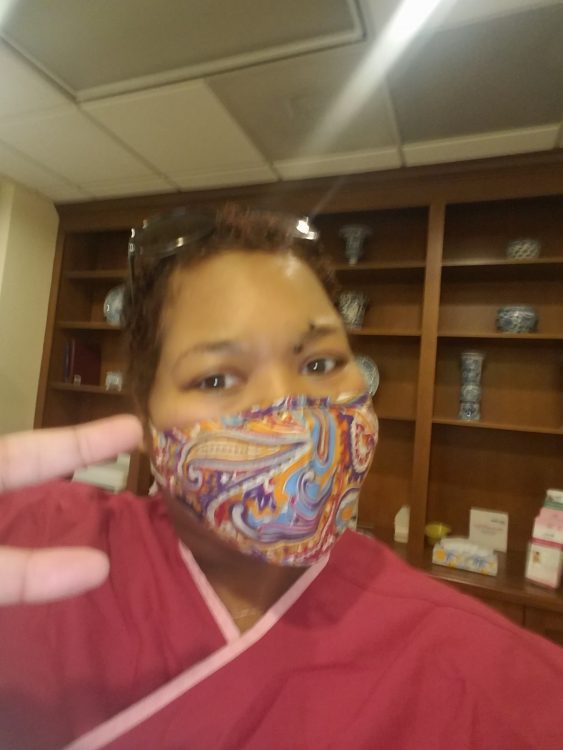This Doctor's Viral TikTok Can Help Explain Racial Bias in Healthcare
Medical racism — not a term you hear often, yet it happens more than you think.
Recently in a viral TikTok video, OB and medical writer Dr. Jennifer Lincoln explained the implicit bias that many doctors have towards patients of color, specifically Black patients. In the video, she references a 2016 study that showed 50% of the medical students and residents who were studied actually thought Black people couldn’t feel pain the same way as White people.
“[People in the study thought Black people] had thicker skin or their nerves didn’t work the same way,” she said. “Where is this from? It’s a holdover from the days of slavery when White people had to feel better about using slaves.”
@drjenniferlincolnAnother reason we have to do better. ##blacklivesmatter ##learnontiktok ##tiktokpartner ##everymom ##blackmoms ##obgyn ##racism♬ original sound – drjenniferlincoln
For most Black people, this isn’t new information. There have been many videos and articles on this topic, showing examples of when conditions were missed, or how doctors allowed their bias to affect treatment. There’s even been incidents where pages from medical textbooks were found to have antiquated information about minority patients. And now years later, we have made little to no progress and still see instances of racism in the medical field. Well, it’s getting old.
Black people — and Black women specifically — are also sometimes ignored when we say we feel something that is not normal or experience something that just “doesn’t quite feel right.” It’s brushed off as being “psychosomatic” when in actuality, we have a major issues going on and by the time it is discovered, it is too late. As Dr. Lincoln mentions in the video, we tend to have longer wait times in the ER and are brushed off and not believed when we’re in pain. This has got to stop.
I’ve had many encounters of medical racism. For years I struggled with pelvic pain and was told “it’s all in your head” or “you’re just seeking drugs.” My favorite was when a doctor called me a “whore” and said that’s why I had pelvic pain. When I pushed back and tried to educate him on the female anatomy and endometriosis, he threatened to call the cops. Needless to say, that didn’t happen and he no longer works at that hospital. It turned out I had a several fibroids and my endometriosis was flaring.
In my years of dealing with chronic pain and chronic illnesses, many doctors have withheld pain medication or other treatment. When I was vomiting or unconscious, then they would finally do tests. When I ended up having a cyst rupturing or a bad infection, they felt awful for treating me like trash.

One particular ER visit I was blacking out and my blood pressure was dangerously high. I sat in the ER waiting room for four hours not being seen. I could see people with minor conditions being treated before me, I was just left there in pain, barely breathing, heart racing. When I was finally taken back I was put in a closet to wait for another hour before seeing a doctor. She did nothing and my friend finally had to get in someone’s face in order to get some real testing and meds to help lower my blood pressure. I found out I had had a mini stroke and was having a hemiplegic migraine at the same time. If it wasn’t for a friend intervening, I would not have gotten any care. In my follow up visit with my PCP and cardiologist, they were both unhappy with my treatment and lodged a complaint.
This is the harsh reality for many patients of color. If I don’t have someone with me when I go to the ER — and honestly, it’s a bonus if it’s a white person — I will not receive the best care. That is real. It doesn’t just happen to me, it happens all over. My father has been prematurely discharged, and either me or my mom have had to take him back and get in someone’s face to get him better care and proper treatment.
It shouldn’t be this way. In her video, Dr. Lincoln offering the following advice to doctors and other medical professionals:
Doctors, nurses, anybody in the medical field: check your implicit bias. If you see somebody spreading these lies, stop them. Also stop yourself whenever you’re caring for somebody who has a different skin color than you and check your bias.
As advanced as modern healthcare is, nobody on this green earth deserves to die or suffer because of their skin color. At this point, we need to rewrite the textbooks, have mandatory training and conversations on systemic racism. Check your colleagues who are biased and assert their power and privilege over a patient. While this is not the whole answer, it is a start in reforming our healthcare system

